We’re all DOOMED!
There’s been something of a Biblical flood of the-end-of-civilisation movies in recent years. From 2007’s 28 Weeks Later (zombie plague) and I Am Legend (cancer cure gone wrong) to Charlie Brooker’s harrowing alleged comedy Dead Set (another zombie plague), the BBC’s remake of Survivors (lethal virus pandemic) and the same broadcaster’s re-remake of The Day Of The Triffids (er, homicidal walking plants), 2009 mega-budget effects-fest 2012 (the classic “solar flares cause planet to boil from the inside”), and right up to this year’s The Road (unnamed catastrophic event), the cultural world is suddenly alive with the mass culling of humanity. Hurrah!
The one avenue for the obliteration of mankind that hasn’t been explored for a while is the classic nuclear holocaust, even though – or possibly because – an increasingly aggressive and powerful Russia has been rattling its sabre on the world stage for the first time in two decades. However, with the imminent The Book Of Eli making reference to a war that leaves the planet a ravaged wasteland, it looks like the atomic menace is back, Back, BACK! Which got WoSland thinking – what’s the bleakest nuclear holocaust movie ever?
5. THE WAR GAME (Peter Watkins, BBC, 1965) The War Game is perhaps the most famous of all the apocalypse movies. Ostensibly a play, the drama-documentary was made in 1965 and scheduled for transmission on the 21st anniversary of the atomic-bomb attack on Hiroshima (6 August 1966), but wasn’t broadcast until almost 20 years later, in 1985, because it was deemed either too horrifying or too political, depending on who you believe.
Starting with a rather weak premise for events (the USSR and East Germany sealing off and occupying West Berlin “in order to show collective Communist support for the Chinese invasion of South Vietnam”, against which the US are said to be planning to use tactical nuclear weapons), The War Game gets going with scenes of a rather quaint mass evacuation of women, children and the disabled to rural parts of the country, where they’re received by reluctant householders with some charmingly old-fashioned British racism (“Are they coloured?”).
The film piles on the gloom early on, with the clipped tones of the BBC narrator (one of three used in the film, including Michael Aspel) pointing out that many of the places evacuees would be sent to would be rendered lethally uninhabitable anyway in the event of war by radioactive fallout.
(At this point we’re also introduced to what will be a recurring theme in TWG, namely vox-pop segments in which various members of the public are interviewed in the street and demonstrate their total ignorance of such issues – one woman, on being asked if she knows what Strontium-90 is, replies “I’ve no idea, really. I know it’s some sort of gunpowder or something, that blows up”. It’s never clear whether any these vox pops were real or staged by actors – some of them are obviously fictional, as they’re set during the film’s state of emergency, but there’s an implication that others feature genuine citizens.)
The War Game is much shorter than any of the other major apocalypse movies, at just 46 minutes, so it can’t afford to hang around and the actual attack takes place after a mere 15 minutes of scene-setting. (It’s implied that US forces use battlefield nuclear weapons first, as part of at attempt to reach West Berlin, and the situation then escalates into full-scale war as the Soviets launch all their inter-continental ballistic missiles in order to prevent them from being destroyed in a first strike.)
In one of the movie’s less subtle political comments, we experience it with a family who “couldn’t afford to build a refuge”, and the first victims suffer melted eyeballs in the back garden before the blast wave – which we’re told shortly afterwards “has been likened to an enormous door slamming in the depths of Hell” – destroys their terraced house.
There are some more grisly scenes of the immediate attack (a small child further away from the explosion is blinded by the flash, then there’s an extended sequence of a firestorm with a family burning to death in their car and firemen and civilians dying of heatstroke and suffocation as the firestorm consumes all the oxygen around them.
We move on swiftly through the gruesome business of triage at an emergency hospital (including a chilling scene of policemen carrying out mercy killings of those who’ve been deemed untreatable), mass cremations of bodies, buckets full of wedding rings retrieved from the dead, food riots, mob killings and executions of looters, all set against a backdrop of rubble-strewn ruins.
This middle section – apart from an unfortunate outbreak of poetry at 34 minutes – is the most powerful in the film. Compared to the more expansive, professional footage of earlier, it’s all shot at close quarters with a shaky camera, to convey the comparatively precarious state of civilisation after the attack. It’s a clever technique from a movie made on a very low budget, subtly getting across humanity’s diminished condition without having to have the narrators spell it out, and drawing the viewer immediately down into the newly-primitive world of the survivors.
The last few minutes let the movie down a bit, with some amateurish polemic and some unintentionally comic footage of how Watkins perceived the reactions of the poor dumb working classes to the post-apocalypse world, alongside a prediction that such a war would probably take place by 1980. But still, by the standards of 1965 it’s a chilling piece of work.
BLEAKNESS RATING: 5/10 Political bias and dubious sources dilute the effect somewhat, some parts are unintentionally funny and it’s also mercifully-short, but it’s still pretty grim.
Clicking on any of the pics above will take you to a YouTube playlist where you can watch the entire movie. Tune in soon [EDIT: clearly not all that soon] for the 4th-bleakest nuclear holocaust movie of all time!
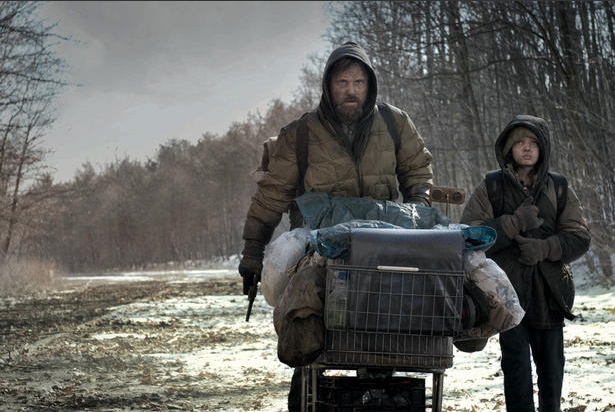
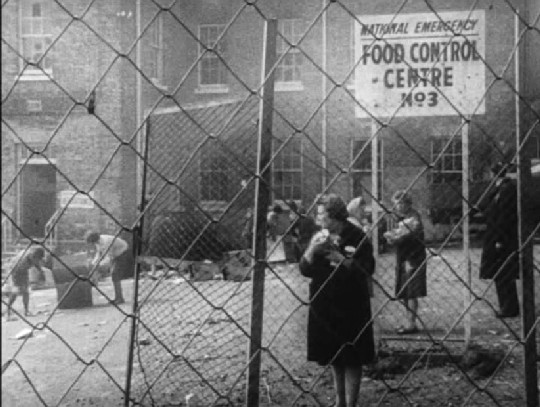
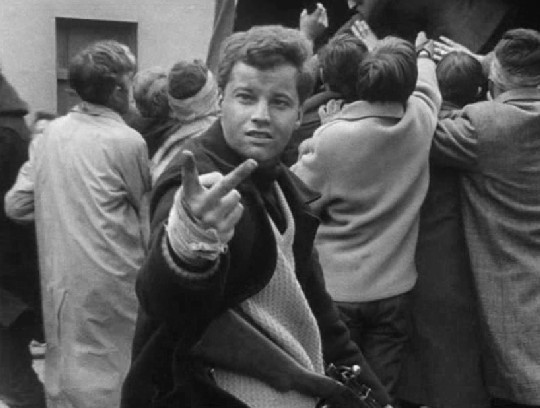
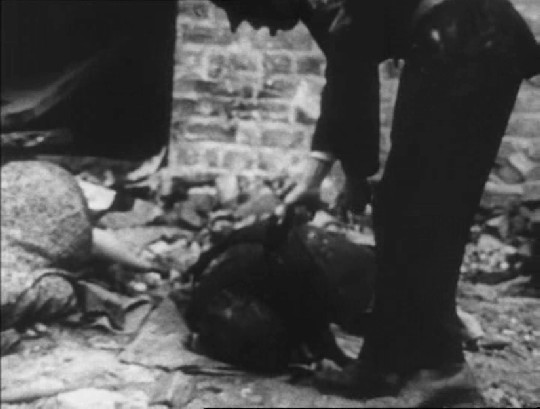
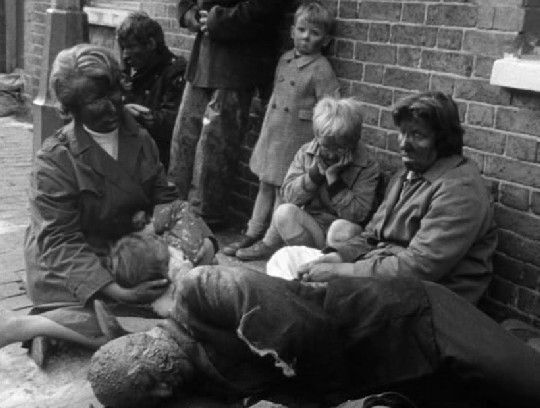
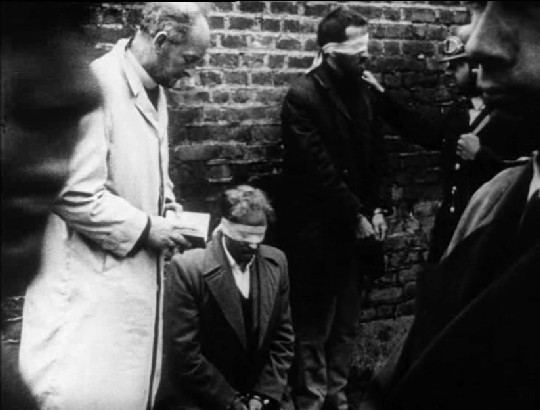
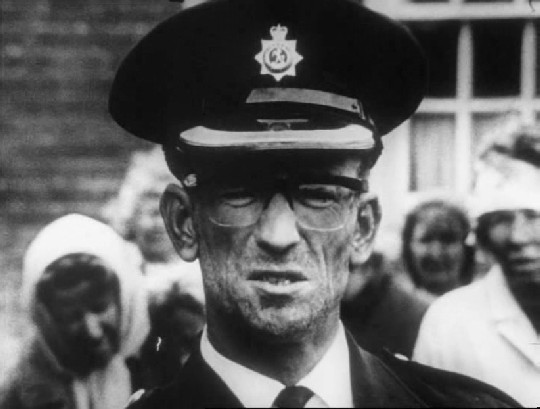
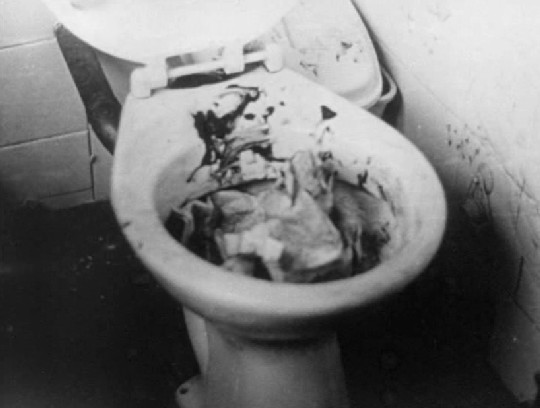








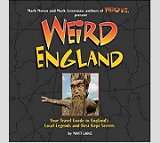
Are you including TV movies? If so, Threads has got to be number one. I’d caught bits of that in the past, but watched the entire thing one (extended) lunchtime a couple of years back. Just about the bleakest thing I’ve ever watched, and I didn’t get a whole lot of work done that afternoon.
Will you be covering the Protect and Survive Public information films, I don’t know if they’ll qualify as being bleak enough though.
It’s gotta be “Threads” all the way. “Bleak” doesn’t even come CLOSE.
Most apocalyptically of all – you’ve seen who wrote The Book Of Eli? (caution, “spoiler”: http://thefilmstage.com/2010/01/18/interview-part-1-gary-whitta-on-the-book-of-eli/ …)
Oh my FG.
A bit of a sidetrack (as I forgot it was an article about nuclear holocausts*) but I watched ‘Koyaanisqatsi’ (Life out of Balance) last night: it’s one of the bleakest films I’ve ever seen. A bewildering journey through human existence; I won’t say much more because I don’t really know what to say. There are fragments on YouTube but it deserves to be watched, upscaled if possible, in a dark room on your own.
*Hmmm: it does feature footage of nuclear tests though. Damn my shoddy memory.
The 1965 vox pop could well be real. The public were left deliberately ignorant of what was going on. I doubt anyone but a physicist would have a chance of knowing what Strontium was then. Duck and cover, etc.
The police back then were told in training that the plan for nuclear war was that the policemen were to abandon their families as soon as they got the early warning (before the public) that something was about to happen and then go to the hills where they'd shelter out the disaster of bombs falling and everything being destroyed and then return to the cities to enforce law and order on whatever survived (that's after poking their rad counter out of the hatch every now and then to see if it was safe), organising digging mass graves, ensuring the rule of law and order, etc. I loved the idea that they fully expected the policemen to abandon their own wives and children in an instant to a hideous apocalyptic death and post-apocalytic chaos and that they expected no one to notive all the police vanishing off to the hills.
Naturally the likelihood of the average policemen then obeying these orders were slim to nothing, with almost all of them being amused or disgusted with the training films and nuclear war related information back then. The modern over the top terror training reminds me of this but refined in its manipulative qualities and sadly its hold on the policemen seems to be far stronger.